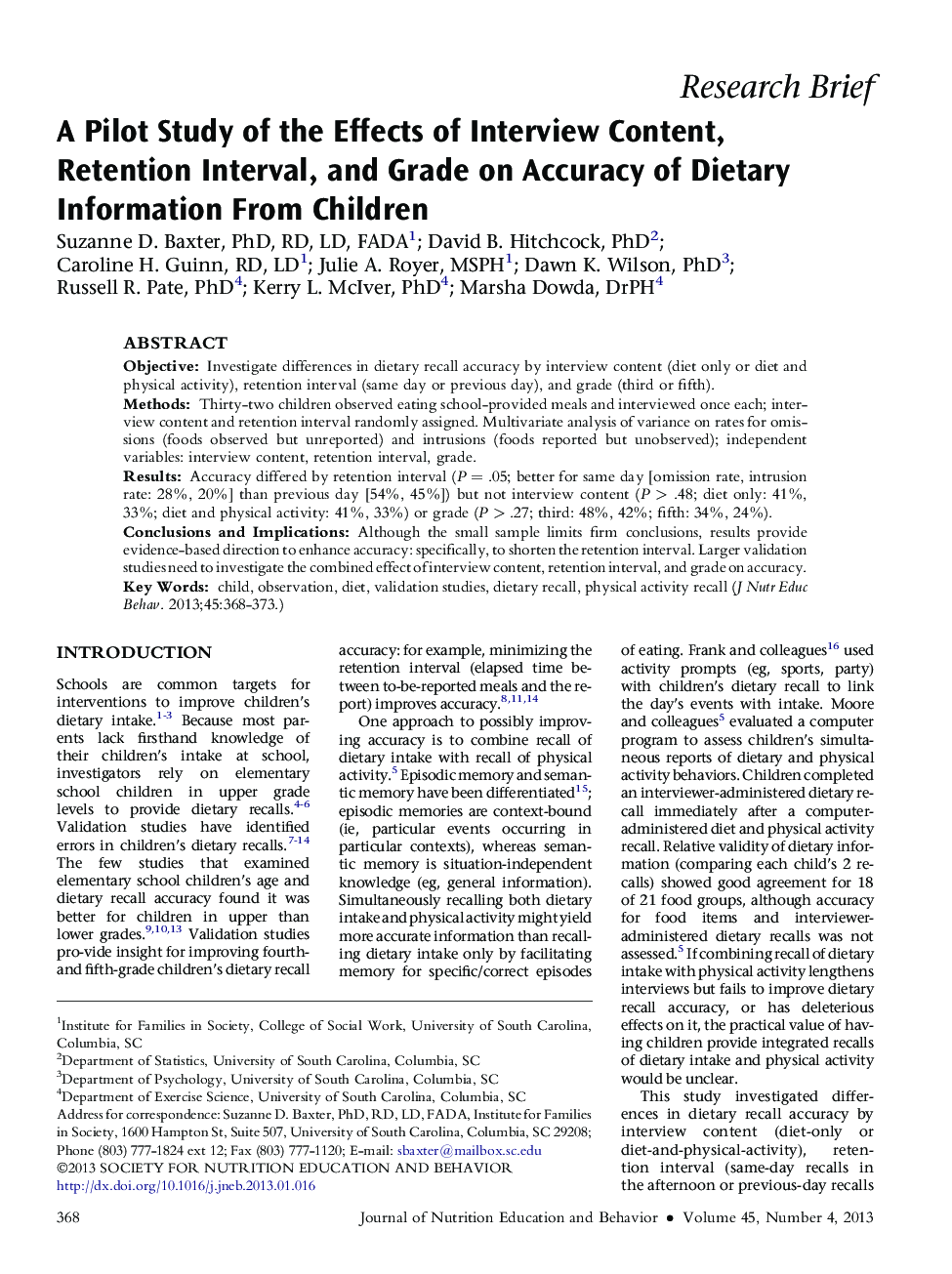| Article ID | Journal | Published Year | Pages | File Type |
|---|---|---|---|---|
| 361402 | Journal of Nutrition Education and Behavior | 2013 | 6 Pages |
ObjectiveInvestigate differences in dietary recall accuracy by interview content (diet only or diet and physical activity), retention interval (same day or previous day), and grade (third or fifth).MethodsThirty-two children observed eating school-provided meals and interviewed once each; interview content and retention interval randomly assigned. Multivariate analysis of variance on rates for omissions (foods observed but unreported) and intrusions (foods reported but unobserved); independent variables: interview content, retention interval, grade.ResultsAccuracy differed by retention interval (P = .05; better for same day [omission rate, intrusion rate: 28%, 20%] than previous day [54%, 45%]) but not interview content (P > .48; diet only: 41%, 33%; diet and physical activity: 41%, 33%) or grade (P > .27; third: 48%, 42%; fifth: 34%, 24%).Conclusions and ImplicationsAlthough the small sample limits firm conclusions, results provide evidence-based direction to enhance accuracy: specifically, to shorten the retention interval. Larger validation studies need to investigate the combined effect of interview content, retention interval, and grade on accuracy.
